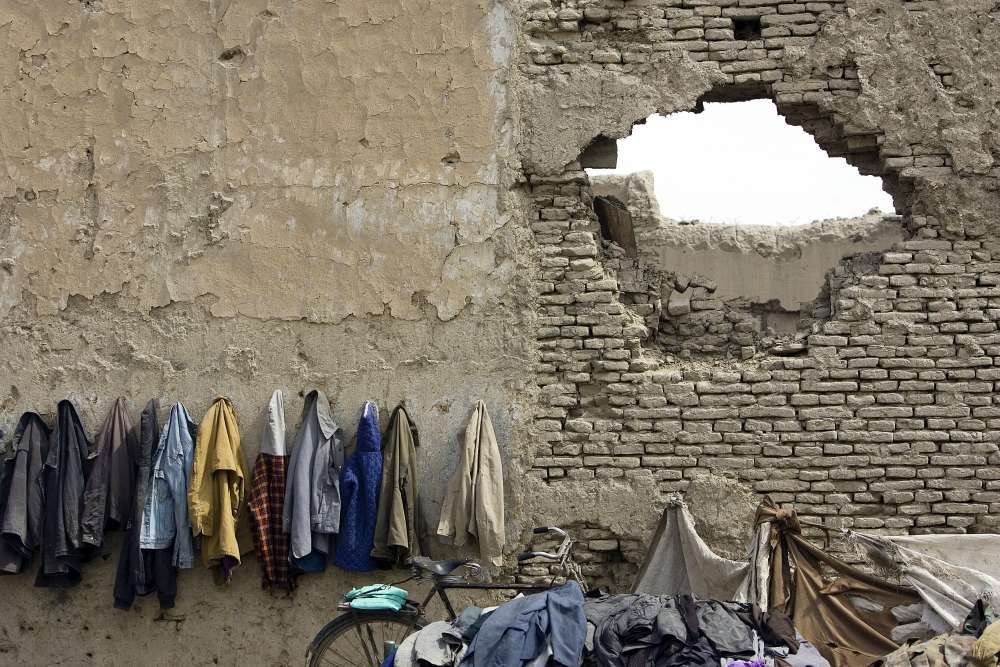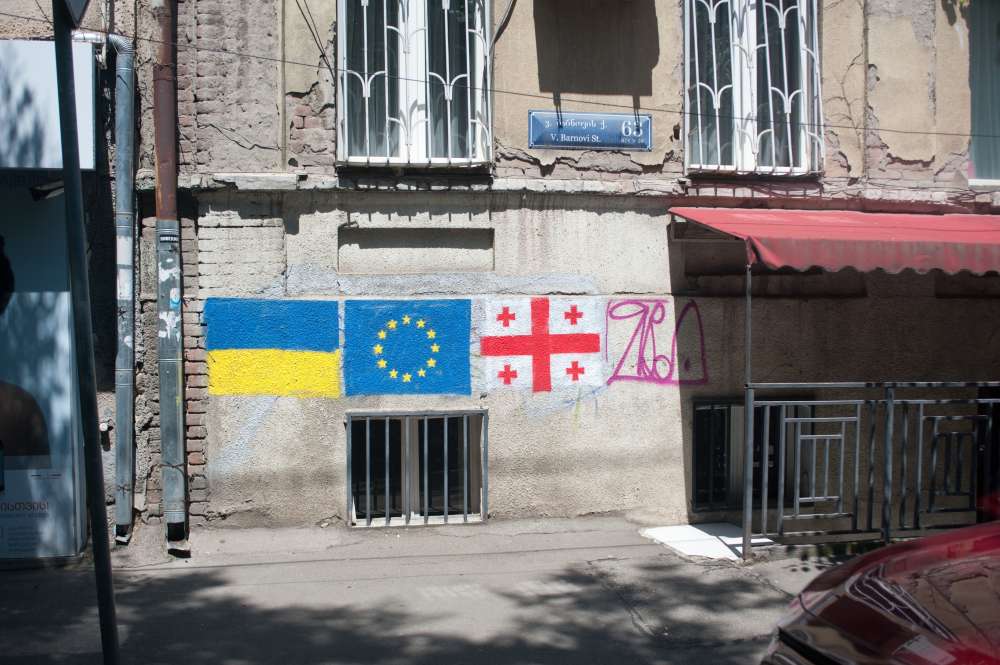Germany Must Get a Grip on Inter-Agency Coordination

Never before has the survival of a German government been so intimately connected to succeeding in conflict management, stabilization, and peacebuilding efforts. Adequately tackling the question of how Germany can contribute to reducing the number of refugees across the world will be one of the most pressing issues for the future German government. In concrete terms, addressing this means reducing violence and civil wars, contributing to economic development, protecting people from the worst effects of climate change, providing education, as well as ensuring democratic participation and human rights for millions for people across the globe.
This is certainly a daunting and enormously difficult task. Yet Germany, in cooperation with its European and international partners, has a broad array of instruments and knowledge at its disposal to make significant progress in this area. What has been missing so far, however, is clear coordination and a common, goal-oriented strategy among Germany’s various responsible ministries.
Efforts in Mali are a case in point. Over the past few years, the ministry of development cooperation has spent millions of aid in the country, while the defense ministry sent hundreds of soldiers into EU and UN missions; the foreign ministry was supposed to ensure that all these activities remain embedded in a broader, holistic political and diplomatic strategy. However, the three ministries did little more than inform each other of their respective activities; there was no common, let alone convincing political strategy. Rather, the ministries wastefully expended energy and resources on internal competition and infighting.
Looking at other issue areas makes these tensions all the more obvious and glaring. For example, Germany is an ardent supporter of the European Union’s Common Agricultural Policy, which ensures that cheap meat products and grain from Europe flood African markets. At the same time, German development aid to Africa attempts to create local employment in African agricultural industries as a primary objective. Similarly, consider that Germany has simultaneously exported weapons to Saudi Arabia while also seeking to mediate talks on the Yemeni conflict, which the Saudis are actively engaged in. Finally, we might point to the contrast between Germany’s enthusiastic defense of the humanitarian principles of neutrality and ubiquitous humanitarian access and its insistence that humanitarian assistance to refugees in Turkey be conditional on political concession in a refugee deal. There are countless other such examples. What is most concerning, however, is the fact that these contradictions and conflicts are hardly ever discussed in Germany, neither among political elites nor among the general public.
Thus, the question is: how should Germany go about improving its coordination with other countries if it is struggling to get a grip on inter-agency coordination within its own government?
Past German governments have repeatedly endorsed vague language on the need for more coherence. The latest edition can be found in the 2016 Defense White Paper and new guidelines on “Preventing Crises, Resolving Conflicts, Building Peace” which were passed by the Federal Cabinet in June 2017. Yet, government officials failed to agree what this language meant in terms of creating structures. High-ranking policymakers spent thousands of working days arguing about who might be responsible in which issue area, and who would chair which meeting in what constellation. Again and again, this resulted in stalemate and superficial compromises.
What would be a solution to this mess? There are four steps that the future German government should take.
First, the relevant ministries could create a structure with decision-making power responsible for the day-to-day coordination of affairs, with the additional authority to formulate strategy. The existing “Federal Security Council” (Bundessicherheitsrat) is largely defunct as a policy-making forum on international security issues, and as of now there is no other cabinet-level forum to coordinate international security or prevention. The logical solution would be to create a national security council led by the Chancellery. Yet, during the above mentioned strategy processes in the past few years, Angela Merkel twice decided against making the reinforcements to the Chancellery that would have been necessary to perform this council function.
Barring the creation of a German “National Security Council,” the second-best option is to use a coalition agreement to extend and significantly strengthen the “coordination group for crisis prevention, stabilization and peacebuilding” among ministry directors-general that was created by the June 2017 guidelines. As of now, this coordination group has only been piloted, as months of infighting within the last German administration halted its further use and development. This group is chaired by the Foreign Office representative followed by the Defense Ministry representative for three months each. The next coalition agreement would need to extend this mechanism. Similarly, it would have to give the group the mandate to draft and adapt strategies, as well as invest it with meaningful decision-making authority.
Second, the new government could create an advisory council for peace and security, similar in structure and nature to the existing “German Ethics Council” (Deutscher Ethikrat). This entity would identify and communicate the contradictions between different government policies on peace, security, and other policy areas. Its goal would be to lay out the trade-offs of different policy strategies and enable more informed public debate. This council would be composed of politicians as well as members from civil society bodies and other German policy organizations, as well as experts from affected countries.
Third, the newly elected parliament could create a special parliamentary committee that accompanies the executive branch’s efforts towards a comprehensive approach. So far, parliamentary committees generally only mirror the ministries; in the case of peace and security policy, this exacerbates the lack of cooperation and common strategy within the executive branch and the ministries. The newly elected parliament should create an overarching special committee, which brings together MPs working not only on foreign, defense, and development policy, but also on trade, agriculture, internal security, and the environment. Every time the next parliament debates a mandate for a German military intervention or peacekeeping contribution, this committee could deliberate on the corresponding civilian and diplomatic instruments and political strategy. This would further ensure that these elements are adequately reflected in political and public debate where, far too often, the focus lies strictly on the military aspects of interventions.
The fourth and decisive point is that ultimately, culture eats structure for lunch. Germany will need ministers that live and breathe coordination. No more conferences on “a comprehensive [German] approach on security and development in Africa” to which the Foreign Office is not even invited. Instead, how about a new foreign minister who not only travels with their French colleague, but also with their colleagues from the defense, development, environment, economic, or interior ministry?
While this may all sound a bit too technocratic and not very sexy, it could not be more important. Effective strategies for reducing the causes of flight and migration will be decisive for the survival of the next German government. A successful strategy is no longer optional, but vital for all four coalition partners. Even if all partners work together, the challenges will be daunting; yet if all parties simply fight for themselves, they are all bound to fail together.
…
A German version of this commentary first appeared in the German daily Frankfurter Rundschau on October 30, 2017.







